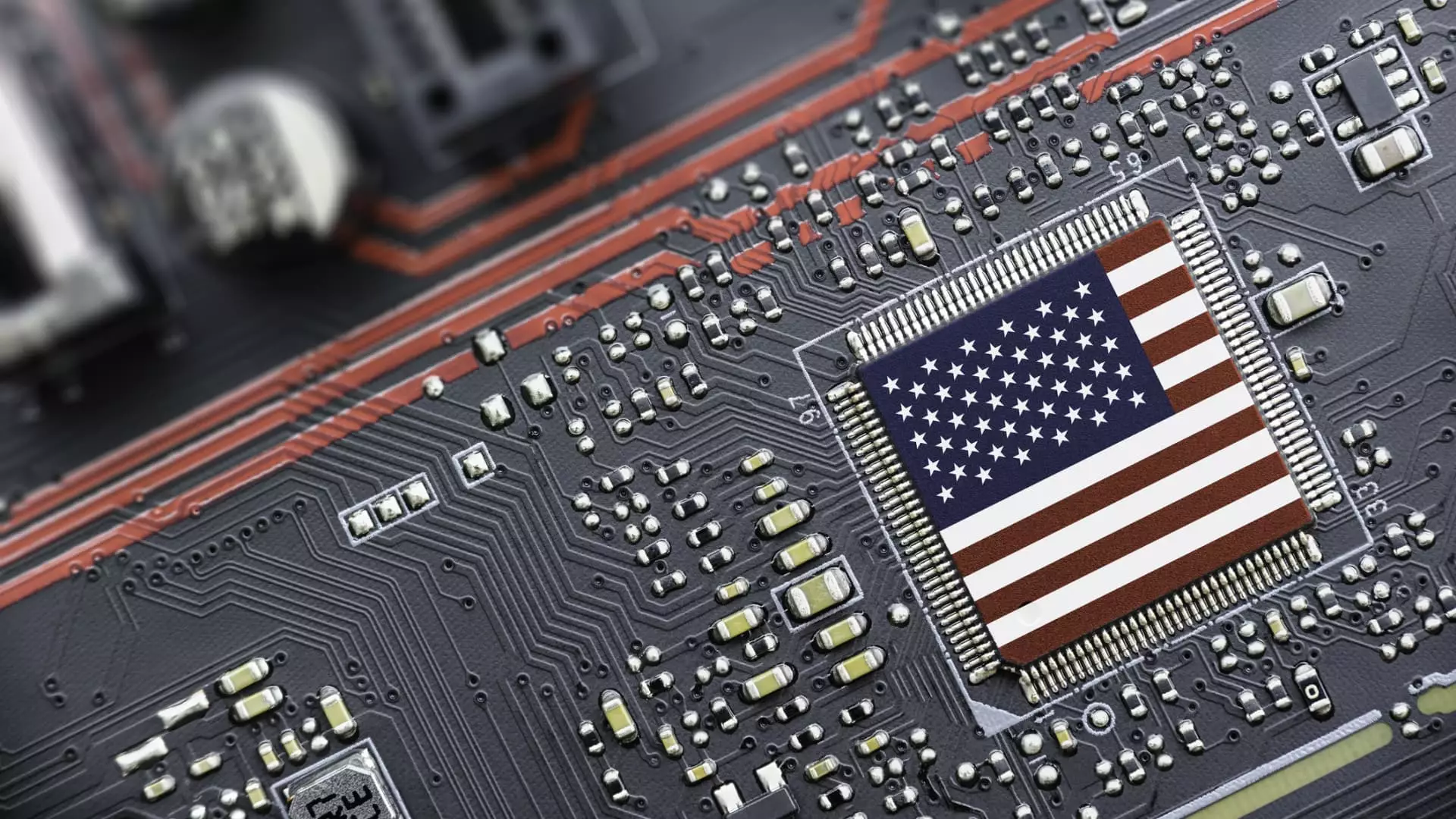The recent announcement by the U.S. Commerce Department regarding a national security investigation into semiconductor imports is a clear pivot under the Trump administration aimed at securing American technological sovereignty. The document released on the Federal Register not only outlines the scope of the investigation but also reinforces the administration’s intent to maintain tight control over the electronic supply chain that has become increasingly dependent on foreign markets. This move is emblematic of a broader strategic effort to bolster domestic semiconductor production—an industry critical to national security and economic stability.
The inquiry specifically examines whether enhancing domestic semiconductor manufacturing capacity could reduce America’s reliance on imports, and whether initiating further trade measures, such as tariffs, would be justified. By targeting crucial components—silicon wafers, chip manufacturing equipment, and semiconductor-containing products—the Commerce Department is acknowledging a significant vulnerability in the current supply chain model.
The Complicated Landscape of Tariffs and Exemptions
The tumultuous world of tariffs is further complicated as President Trump and his officials appear to navigate exemptions for certain electronic products carefully while hinting at future tariffs on semiconductors. On the one hand, the president’s comments suggest a strategy to keep producers on their toes; on the other, they indicate a potentially disruptive approach to global trade. The implication that exemptions may be temporary adds a layer of uncertainty for companies operating in this crucial sector, and it poses significant questions about the future pricing of chips in an already competitive market.
As the investigation into semiconductor imports moves forward, public feedback will have substantial relevance. The Commerce Department has solicited comments to be submitted, reflecting a commitment to public involvement in policy-making. Opinions gleaned from industry insiders and consumers alike could undoubtedly shape the outcomes of this inquiry and the subsequent actions taken by the administration.
American Vulnerabilities and Global Dependencies
The dependence of the U.S. on semiconductor imports from countries like Taiwan and South Korea is a national security concern that cannot be overstated. With semiconductors embedded in nearly every facet of modern technology—from smartphones to electric vehicles—the U.S. finds itself at a critical juncture. The aforementioned investigation under Section 232 of the Trade Expansion Act of 1962 highlights an urgent recognition that technological lifelines must be re-evaluated to ensure national safety and economic viability.
This sense of urgency is mirrored by significant investments from major players in the semiconductor industry. Nvidia, the powerhouse behind many advancements in artificial intelligence, has announced a bold commitment to manufacture AI supercomputers wholly within the U.S. This decision not only reflects emerging domestic capabilities but also sends a powerful signal to the market about shifting trends in manufacturing bases. Similarly, Taiwan Semiconductor Manufacturing Company’s plans for increased investments in U.S. facilities underscore the industry’s willingness to engage in remaking the supply chain landscape.
The Strategic Importance of Self-Sufficiency
The push for self-sufficiency in semiconductor manufacturing is more than an economic move; it represents a shifting paradigm in American manufacturing. Policies such as the $280 billion CHIPS and Science Act signify a determination to invest in infrastructure, research, and the workforce necessary to rejuvenate U.S. manufacturing. The rationale is clear: to protect the nation’s competitiveness, a robust domestic semiconductor industry is non-negotiable.
Assertions that tariffs could arise from this investigation, while potentially disruptive, suggest a longer-term strategy where the U.S. hopes to reclaim its standing as a leader in semiconductor technology. While there are risks involved—such as potential retaliatory measures from affected trading partners—the broader perspective needs to focus on the imperative for America to strengthen its manufacturing capabilities.
In an era where technology drives economies, shaping public policy around national security, market competitiveness, and manufacturing integrity is more critical than ever. The semiconductor investigation, therefore, not only reflects an immediate response to geopolitical realities but also hints at a comprehensive strategy that could redefine America’s place in the global supply chain. By fostering an environment conducive to domestic production, the U.S. might genuinely pave the way for innovation and independence in a world increasingly defined by technological prowess.

